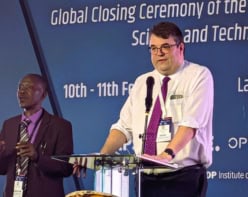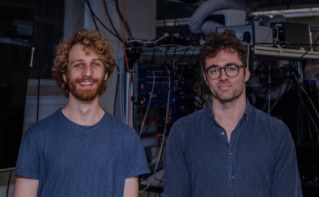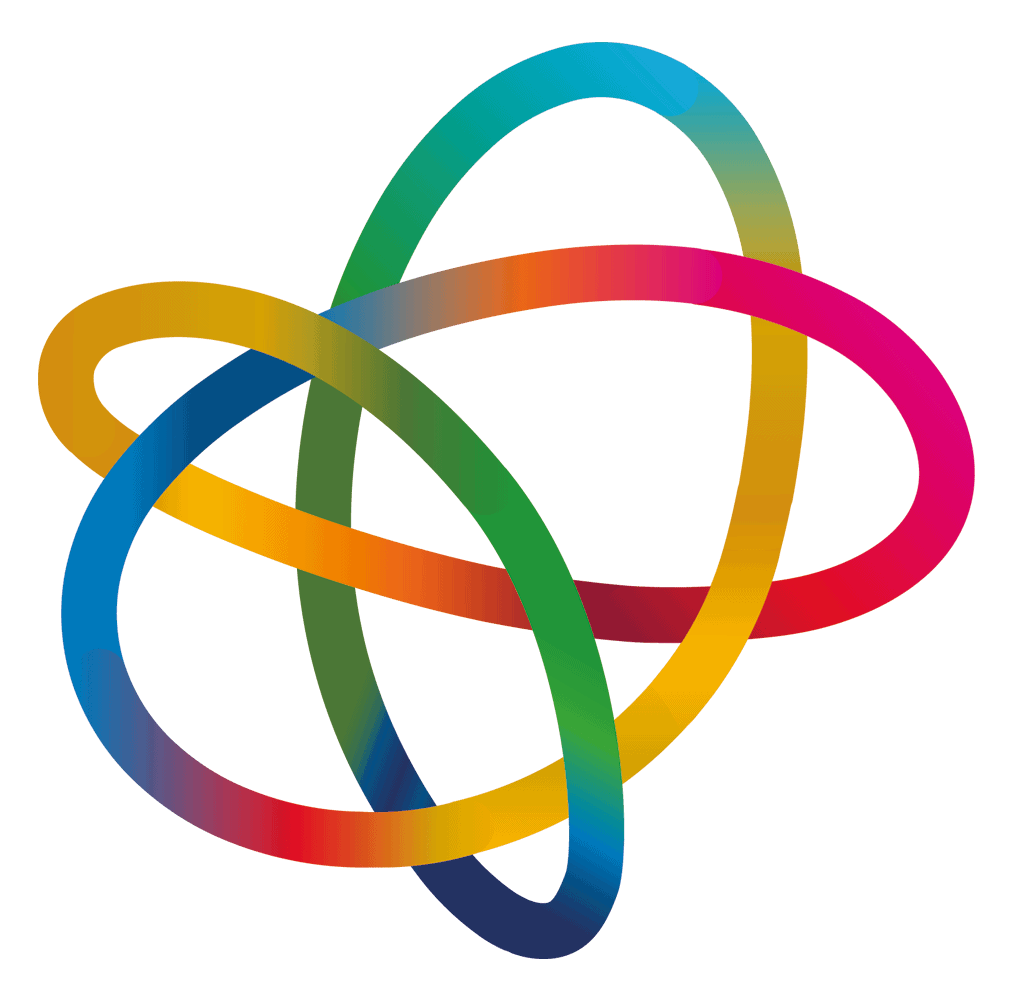
Part of our International Year of Quantum Science and Technology coverage
Matin Durrani looks back at a week-long series of events organized by the Institute of Physics in the UK to mark the International Year of Quantum Science and Technology
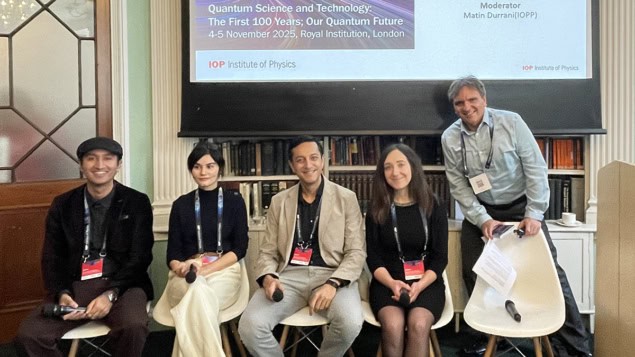
As we enter the final stretch of the International Year of Quantum Science and Technology (IYQ), I hope you’ve enjoyed our extensive quantum coverage over the last 12 months. We’ve tackled the history of the subject, explored some of the unexplained mysteries that still make quantum physics so exciting, and examined many of the commercial applications of quantum technology. You can find most of our coverage collected into two free-to-read digital Quantum Briefings, available here and here on the Physics World website.
Over the last 100 years since Werner Heisenberg first developed quantum mechanics on the island of Helgoland in June 1925, quantum mechanics has proved to be an incredibly powerful, successful and logically consistent theory. Our understanding of the subatomic world is no longer the “lamentable hodgepodge of hypotheses, principles, theorems and computational recipes”, as the Israeli physicist and philosopher Max Jammer memorably once described it.
In fact, quantum mechanics has not just transformed our understanding of the natural world; it has immense practical ramifications too, with so-called “quantum 1.0” technologies – lasers, semiconductors and electronics – underpinning our modern world. But as was clear from the UK National Quantum Technologies Showcase in London last week, organized by Innovate UK, the “quantum 2.0” revolution is now in full swing.
The day-long event, which is now in its 10th year, featured over 100 exhibitors, including many companies that are already using fundamental quantum concepts such as entanglement and superposition to support the burgeoning fields of quantum computing, quantum sensing and quantum communication. The show was attended by more than 3000 delegates, some of whom almost had to be ushered out of the door at closing time, so keen were they to keep talking.
Intrigued by quantum? Explore the 2025 Physics World Quantum Briefing 2.0
Last week also saw a two-day conference at the historic Royal Institution (RI) in central London that was a centrepiece of IYQ in the UK and Ireland. Entitled Quantum Science and Technology: the First 100 Years; Our Quantum Future and attended by over 300 people, it was organized by the History of Physics and the Business Innovation and Growth groups of the Institute of Physics (IOP), which publishes Physics World.
The first day, focusing on the foundations of quantum mechanics, ended with a panel discussion – chaired by my colleague Tushna Commissariat and Daisy Shearer from the UK’s National Quantum Computing Centre – with physicists Fay Dowker (Imperial College), Jim Al-Khalili (University of Surrey) and Peter Knight. They talked about whether the quantum wavefunction provides a complete description of physical reality, prompting much discussion with the audience. As Al-Khalili wryly noted, if entanglement has emerged as the fundamental feature of quantum reality, then “decoherence is her annoying and ever-present little brother”.
Knight, meanwhile, who is a powerful figure in quantum-policy circles, went as far as to say that the limit of decoherence – and indeed the boundary between the classical and quantum worlds – is not a fixed and yet-to-be revealed point. Instead, he mused, it will be determined by how much money and ingenuity and time physicists have at their disposal.
Bridging the gap between scientists, policy makers and industry to build the quantum ecosystem
On the second day of the IOP conference at the RI, I chaired a discussion that brought together four future leaders of the subject: Mehul Malik (Heriot-Watt University) and Sarah Malik (University College London) along with industry insiders Nicole Gillett (Riverlane) and Muhammad Hamza Waseem (Quantinuum).
As well as outlining the technical challenges in their fields, the speakers all stressed the importance of developing a “skills pipeline” so that the quantum sector has enough talented people to meet its needs. Also vital will be the need to communicate the mysteries and potential of quantum technology – not just to the public but to industrialists, government officials and venture capitalists. By many measures, the UK is at the forefront of quantum tech – and it is a lead it should not let slip.
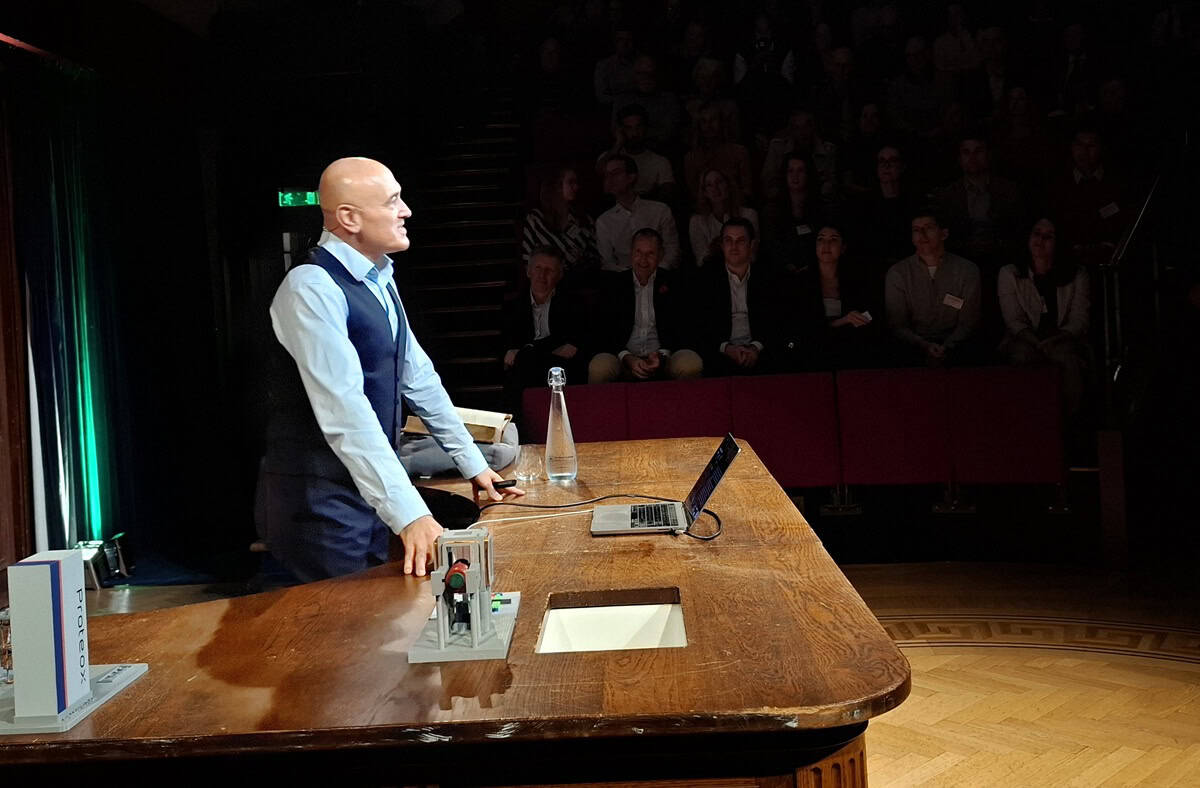
The week ended with Al-Khalili giving a public lecture, also at the Royal Institution, entitled “A new quantum world: ‘spooky’ physics to tech revolution”. It formed part of the RI’s famous Friday night “discourses”, which this year celebrate their 200th anniversary. Al-Khalili, who also presents A Life Scientific on BBC Radio 4, is now the only person ever to have given three RI discourses.
After the lecture, which was sold out, he took part in a panel discussion with Knight and Elizabeth Cunningham, a former vice-president for membership at the IOP. Al-Khalili was later presented with a special bottle of “Glentanglement” whisky made by Glasgow-based Fraunhofer UK for the Scottish Quantum Technology cluster.



